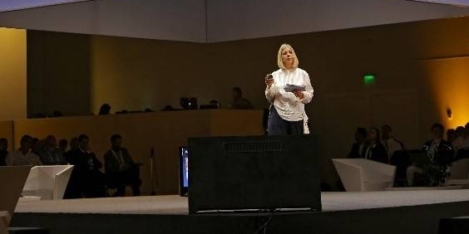July 4, 2018
Why you should definitely stand in meetings (and not care what others think about it)
 People who stand in meetings may enjoy a number of health benefits, but it can also make them feel self-conscious, anxious about how others perceive them, and disengaged from the meeting. These findings, taken from our recent study, suggest that efforts to encourage office workers to sit less and move more must acknowledge the realities of the workplace that conspire to keep people chained to their seats. Sitting has been linked to adverse health outcomes, including increased risk of obesity, heart disease, some cancers, and poorer mental health. While some evidence suggests that the harms of sitting can be offset by at least one daily hour of moderate physical activity, this seems an unrealistic target. (more…)
People who stand in meetings may enjoy a number of health benefits, but it can also make them feel self-conscious, anxious about how others perceive them, and disengaged from the meeting. These findings, taken from our recent study, suggest that efforts to encourage office workers to sit less and move more must acknowledge the realities of the workplace that conspire to keep people chained to their seats. Sitting has been linked to adverse health outcomes, including increased risk of obesity, heart disease, some cancers, and poorer mental health. While some evidence suggests that the harms of sitting can be offset by at least one daily hour of moderate physical activity, this seems an unrealistic target. (more…)

















 Business Secretary Greg Clark proposed new laws in Parliament yesterday (June 11th) that new large firms will have to justify their chief executives’ salaries and reveal the gap to their average UK worker. It means that for the first time, UK listed companies with more than 250 UK employees will have to disclose and explain this difference – known as ‘pay ratios’ – every year. However, according to data published today by the Chartered Management Institute (CMI) and
Business Secretary Greg Clark proposed new laws in Parliament yesterday (June 11th) that new large firms will have to justify their chief executives’ salaries and reveal the gap to their average UK worker. It means that for the first time, UK listed companies with more than 250 UK employees will have to disclose and explain this difference – known as ‘pay ratios’ – every year. However, according to data published today by the Chartered Management Institute (CMI) and 















July 5, 2018
Why a Google office simply does not work for everybody 0
by Dr Caroline M. Burns • Comment, Facilities management, Technology, Workplace design
(more…)